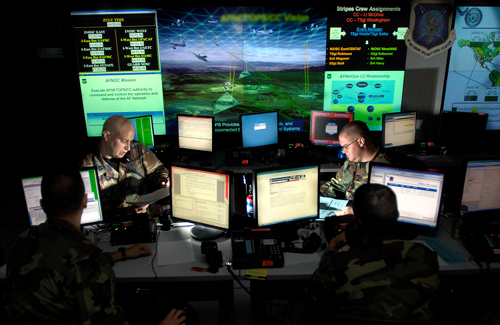
From Robin Tim Weis, FrumForum: What is the likelihood that NATO would invoke Article Five–NATO’s collective defense clause–in response to a cyber attack? The possibility first entered media discourse back in October 2010 when the German Süddeutsche Zeitung reported on an internal memo in which NATO Secretary-General Anders Fogh Rasmussen discussed the use of Article Five in the case of an cyber attack. . . .
Karl-Heinz Lather, former chief of staff of NATO’s SHAPE stressed to me that NATO’s cyber strategy is first and foremost internally orientated. Much like a bank, NATO has to first secure its own critical infrastructures. Hence the security of “NATO’s own networks” has clear priority before any national, international, or regional networks or grids.
Lather did confess that there currently is no “recipe” which NATO can use to clearly respond to cyber attacks. “Article five responses require very concrete targets, which you don’t have with cyber attacks.” As a result, Lather deems the Article Five issue as off the table for the alliance.
However, Jamie Shea, NATO Deputy Assistant Secretary General for Emerging Security Challenges seemed more assured on the issue. While cyber attacks are “admittedly difficult” he did voice confidence in the progress of NATO’s “cyber forensics” especially since “cyberspace [has become a] leading area of investment for the private sector IT companies and governments alike.”
In addition, Shea stressed a legal parameter for responding to cyber attack where “countries suspected of launching cyber attacks could be put under a legal obligation to cooperate with an investigation on behalf of the victim.”
Despite the barriers presented by “laundering”, one must recognize that state-sponsored cyber-attacks are on the rise and require a strong deterrent.
Jaak Aaviksoo, the Estonian defense minister has urged NATO to resolve the cyber matter since at the moment, “Not a single NATO defense minister would define a cyber-attack as a clear military action at present.” (photo: FrumForum)
Image: frumforum%2011%2030%2011%20Cyber-Warfare.jpg
